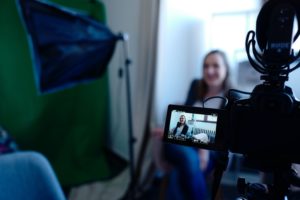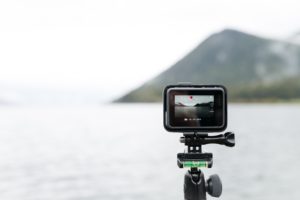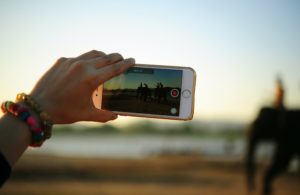Laura Hollinshead, Learning Technologist-Curriculum Development

It can be a big challenge to provide students with the same experiences they would have had taking part in field trips or site visits. Although we will never be able to replicate some aspects of this experience there are areas which we can look at that can be provided remotely.
Video can be a powerful medium to help bring an experience to students which they are not able to access face-to-face. You could look at sourcing video from elsewhere, creating it yourself or getting your students to create videos, all of which can help to recreate some aspects of these off-campus learning opportunities.
Sourcing video

The first option is to try and source video resources which already exist. For instance:
- Some museums and sites already have online virtual tours which you can point students towards and then ask them to carry out similar tasks to those you would have set on location.
- There are live wildlife feeds which could help them to observe behaviour which they would have seen on a field trip.
- There are many theatre performances which have been made available which students could watch and then critique in a similar way to a show seen within the theatre.
- Box of Broadcasts (BoB) provides freeview programmes from radio and television which can be clipped and added to a playlist to help guide students through them (only available in the UK, temporarily in the EU also – we are not sure when this will end).
Creating your own video

Another option is to consider what video you can create yourself. Whether this is video from your local area or going on a socially distanced trip to a relevant site, this can still provide useful learning materials for your students.
- Guidance on creating videos can be found on the Create site.
- You could provide an infographic which links to the videos to help students navigate through them. This will help the students to see this as a journey and could guide them through the steps typically taken during off campus experiences.
- Advances in video technology mean that we can often use our own devices to create these video experiences or there are options for Colleges to purchase affordable equipment which could be used to capture this.
- A couple of types of video can feel more immersive for students. Action or point of view video, typically showing the view from a person’s perspective (associated with GoPro cameras) and 360° video which gives students agency to look around and explore a single location, work well for this.
History have used this approach to create a ‘video tour of Calke Abbey and its grounds for a module on ‘the British Country House’ as an alternative to the field trip. Helping the students to experience going around the site and looking at the historical aspects of the house and gardens.
Getting students to generate their own video

There is also an option to get students to create their own video and share this with their cohort. For instance, some students may be in a position to go out locally and carry out activities, these videos could be posted online for others to view and reflect on. This could even be done as a series of podcasts to help students engage with this on a regular basis. Again, the Create site can help to guide them in making this content.
Final thoughts

It is worth considering that when offsite learning experiences are possible again, it is well worth creating videos during these trips which could be used to induct students in off campus activities or provided as an alternative to those students who are unable to take part.
If you would be interested in exploring using video in your programme and would like to talk about your options, then please contact tel@derby.ac.uk.
I am sure you may have your own tips and hints so feel free to let us know at celt@derby.ac.uk so, we can share these within the university community.